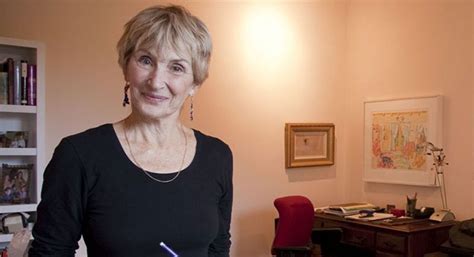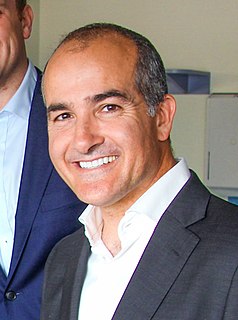A Quote by Tariq Ramadan
Drafting of the constitutions is interesting and the discussions around them revealing in many ways. I take it as a discussion of very important symbols revealing many different problems. My take at the beginning was to warn that Tunisia might be the only successful country, the only one to justify us in talking about the spring, while all the other countries were less successful, if not failing. Now the point is that even in Tunisia it is not going to be easy, and this is where we have a problem.
Quote Topics
Related Quotes
Even after the whole democratization process, it's quite clear that the United States are not seen in a positive way in all the Muslim-majority countries - in Egypt, in Libya, even in Tunisia - even though we have now a kind of trying to be recognized as democrats by the Islamists who are running, you know, Tunisia and Egypt. But the popular sentiment is very, very negative.
I see encouraging signs of democracy developing in other places in the Middle East. In Tunisia, in Iraq, and now in Egypt. Tunisia is the one Muslim country that does something for girls and education. As far as I know, this is the only Muslim country where this is true. There is compulsory education for girls from the age of 5.
There are so many different kinds of writing and so many ways to work that the only rule is this: do what works. Almost everything has been tried and found to succeed for somebody. The methods, even the ideas of successful writers contradict each other in a most heartening way, and the only element I find common to all successful writers is persistence-an overwhelming determination to succeed.
The external support can never substitute internal support, the example that we have to look at very well is Egypt and Tunisia ; they have all the support from the West and from the Gulf and from most of the countries of the world. When they don't have support within their country, they couldn't continue more than - how many weeks ? - three weeks. So, the only reason we stand here for two years and a half is because we have internal support, public support.
It's quite interesting, looking back at the first one [film about Harry Potter], nobody knew whether or not it was going to be successful as a film. The books were of course already very successful, but that's happened before, where the books were successful and the films weren't at all. But it turned out that they were.
We have lots of other problems with plastic in our oceans. There are five different big gyres of plastic out in the ocean. There are problems with air pollution around the country that we need to deal with, and around the world. We have a great many problems to overcome, so I work on a lot of different boards trying to help in those important areas.
In an election like this one [in 2016], not only are voters dissatisfied, but where the foundations of our economy, our democracy, our ecosystem, and international war and peace are really crumbling and are really at grave risk for failing in many ways, we need desperately to have an honest public conversation about both the track record of where we've been, what are the critical problems we are facing and what it will take to solve them.
Talking about improving the culture, I prefer to say "develop" or "evolve" rather than "change". If I walk into a room and say: "we are here to change the organization," it sends shock waves through the group. If I say: "your success to date has come from who you are, to be successful in the future, we need to get to X, let's talk about how we evolve the organization to that point," that is a very different statement. Successful organizational "change" must come from the people. So, recruit them with common purpose, recognize that it will take time, and plow forward.



































